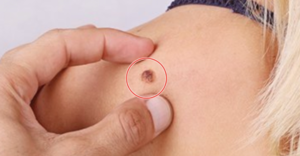Skin cancer is a prevalent condition globally, with millions of cases diagnosed each year. While conventional treatments like surgery, chemotherapy, and radiation therapy are commonly used, many individuals seek alternative and natural methods to manage this condition. In this article, we’ll explore 15 natural ways to treat skin cancer at home, emphasizing the importance of incorporating these methods alongside professional medical guidance.
Understanding Skin Cancer
Skin cancer is a disease caused by the growth of abnormal cells in the skin. There are several types, including basal cell carcinoma, squamous cell carcinoma, and melanoma. Exposure to ultraviolet (UV) radiation from the sun, tanning beds, or other sources is the primary cause of skin cancer. Other risk factors include a family history of the disease, fair skin, and a weakened immune system.
The Role of Natural Treatments
Natural treatments for skin cancer encompass a wide range of remedies derived from plants, herbs, and other natural sources. These treatments offer various benefits, including reduced side effects compared to conventional therapies, affordability, and accessibility. However, it’s crucial to approach natural treatments with caution and consult a healthcare professional before initiating any new regimen.
15 Natural Ways to Treat Skin Cancer at Home
1. Sun Protection
Protecting your skin from UV radiation is essential in preventing skin cancer and supporting treatment. Wear sunscreen with a high SPF, protective clothing, and seek shade during peak sun hours.
2. Diet and Nutrition
Consuming a diet rich in fruits, vegetables, and antioxidants can help support overall skin health. Foods like berries, leafy greens, and nuts contain vitamins and minerals that may aid in skin cancer prevention.
3. Herbal Remedies
Certain herbs, such as echinacea, garlic, and goldenseal, have been traditionally used to support immune function and combat cancer cells. Incorporating these herbs into your diet or using them topically may offer additional benefits.
4. Essential Oils
Essential oils like frankincense, lavender, and tea tree oil possess anti-inflammatory and antimicrobial properties, which may help soothe irritated skin and promote healing.
5. Aloe Vera
Aloe vera gel is renowned for its soothing properties and is commonly used to alleviate sunburns. Applied topically, it may help reduce inflammation and promote skin regeneration.
6. Turmeric
Curcumin, the active compound in turmeric, has demonstrated anti-cancer properties in various studies. Adding turmeric to your diet or applying it topically may support skin cancer treatment.
7. Green Tea
Green tea contains polyphenols, which have antioxidant and anti-inflammatory effects. Drinking green tea regularly may help protect against UV damage and inhibit cancer cell growth.
8. Vitamin D
Maintaining adequate vitamin D levels is crucial for overall health, including skin health. Spend time outdoors to naturally boost vitamin D production, or consider supplements if needed.
9. Omega-3 Fatty Acids
Omega-3 fatty acids found in fish oil, flaxseeds, and walnuts have anti-inflammatory properties that may help reduce the risk of skin cancer and support treatment.
10. Exercise
Regular physical activity not only improves overall health but also enhances immune function and reduces inflammation, potentially aiding in skin cancer prevention and treatment.
11. Stress Management
Chronic stress can weaken the immune system and exacerbate inflammation, increasing the risk of cancer. Use relaxation techniques such as meditation, yoga or deep breathing.
12. Acupuncture
Acupuncture, an ancient Chinese healing practice, involves the insertion of thin needles into specific points on the body to promote energy flow and balance. Some studies suggest it may help alleviate cancer-related symptoms and improve overall well-being.
13. Mind-Body Practices
Mind-body practices such as tai chi, qigong, and mindfulness meditation can enhance physical and emotional well-being, potentially complementing conventional cancer treatments.
14. Homeopathy
Homeopathy utilizes highly diluted natural substances to stimulate the body’s innate healing abilities. While research on its efficacy for cancer treatment is limited, some individuals find relief from symptoms through homeopathic remedies.
15. Ayurveda
Ayurveda, a traditional Indian system of medicine, emphasizes a holistic approach to health and wellness. Herbal remedies, dietary changes, and lifestyle modifications prescribed in Ayurveda may support skin cancer treatment.
Conclusion
While natural treatments for skin cancer offer promising potential, they should be used in conjunction with conventional medical care. Consultation with a healthcare professional is essential to develop a comprehensive treatment plan tailored to individual needs. By incorporating these natural methods alongside professional guidance, individuals can optimize their health and well-being while managing skin cancer.
FAQs
How effective are natural treatments for skin cancer?
Natural treatments can be effective in supporting skin cancer treatment and overall health, but their efficacy may vary depending on individual circumstances. It’s crucial to consult a healthcare professional for personalized recommendations.
Can natural remedies be used alongside conventional treatment?
Yes, natural remedies can often be used alongside conventional treatments like surgery, chemotherapy, and radiation therapy. However, it’s essential to inform your healthcare provider about any supplements or alternative therapies you’re using to avoid potential interactions.
Are there any risks associated with natural treatments?
While natural treatments are generally considered safe, some may carry risks or side effects, especially if used improperly or in combination with other medications. Always review your medico before starting a modern treatment idea.
Whence long does it takings to see results using natural treatment?
The timeframe for seeing results from natural remedies can vary depending on the individual, the type and stage of cancer, and the specific treatment used. It’s essential to be patient and consistent with your chosen regimen while closely monitoring your progress.
Can lifestyle changes help prevent skin cancer recurrence?
Yes, adopting a healthy lifestyle that includes sun protection, a balanced diet, regular exercise, stress management, and avoiding tobacco and excessive alcohol consumption can help reduce the risk of skin cancer recurrence.

